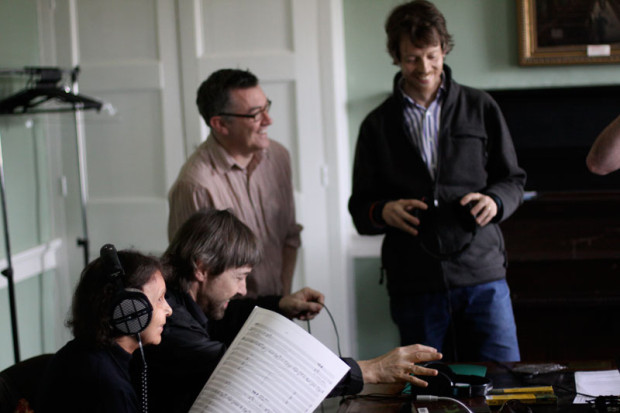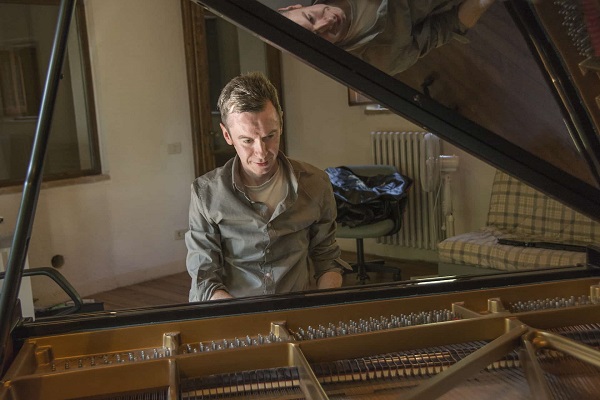
Ed Bennett
Freefalling and Unfolding
Ed Bennett has created a distinctive voice. His music is often built on aggressive gestures and looping, herky-jerk cross-rhythms, and tends to be texturally dense and large in scale. Bennett’s last album, Togetherness, focused on ensemble works performed by Decibel, his answer to rock- and post-minimal-influenced contemporary music groups like Crash Ensemble and Bang on a Can. Decibel performs here too, on the longest work, Song of the Books, featuring Crash’s Kate Ellis on cello. Also featured is the Dutch new music ensemble Orkest de Ereprijs, performing Organ Grinder. These smaller ensembles are paired off against two works for orchestra, Freefalling and Psychedelia, both performed by the RTÉ National Symphony Orchestra. The final work, Magnetic, is much smaller in scale and scope, a duo for clarinet and prepared piano performed by Eliza McCarthy and Jack McNeill.
Bennett’s taste in titles is refreshingly literal and direct, so with works like Freefalling and Organ Grinder, you can guess the soundworld and narrative direction even before listening. The former, inspired, according to Stephen Graham’s liner notes, by Felix Baumgartner’s 2012 world-record freefall, teeters, then hangs, terrifyingly, in space, before an inexorable plummet, the brass plunging towards earth while other sections of the orchestra rise chromatically.
Kate Ellis performs the solo cello part in Song of the Books, named for, and based on, the air ‘Amhrán na Leabhar’, and it’s her work that makes this quasi-concerto the most arresting work on the album, shining through Decibel’s surrounding chaos like a lighthouse in a storm. The opening movement begins as pure tones, alternating low and high – a key idea in the cello part throughout the work – occasionally collapsing into strangled tremolos. It draws propulsive, percussive heft around itself before eventually burning itself out, the closing seconds drifting like flakes of burnt paper. The second movement is calmer and more lyrical than the first, though not without jarring strikes at times from the ensemble. Here, the cello and ensemble alternate for the most part, with electronics providing an old record-like backdrop, which eventually gives way to birdsong. The third movement keeps both the lyrical qualities of the second and the narrative momentum of the first.
For all Bennett’s love of propulsive percussion, driving cross-rhythms and musical fireworks, his music unfolds just as much on a large scale, blocks of sound making up musical waypoints far more than individual chord changes.
The rock influences clear in Bennett’s last release, Togetherness, are more subtle for the most part on this album, but come through at points in both Song of the Books and the title track Psychedelia. In the latter, an ominous rumbling opening in the percussion gives way to an extended build-up founded on open strings and slow wind chords, patiently coalescing over the first half before being carried away by something much more driven and heavy. The ponderous, patient unfolding of the material is reminiscent of John Luther Adams, though with the grungier sound of Julia Wolfe and Louis Andriessen contributing.
Like Freefalling, this is performed by the RTÉ National Symphony Orchestra under David Brophy, who balance the weighty textures with clear, easy-to-discern lines.
Beautiful moment
The album returns to chamber music for the last two works. Of these two, Organ Grinder for midi organ and ensemble is more in line with Bennett’s more aggressive style, alternating vast cluster chords (occasionally with a hanging trumpet note highly reminiscent of the world-ending chord in the first and last movements of Mahler’s tenth symphony) with driving sections featuring bongos and electric and bass guitars.
The last work, Magnetic, is the album’s shortest and most intimate, although arriving more than an hour and ten minutes in, it feels almost ancillary. An eerie stillness begins the work, erratic, jerky rhythms on the piano (prepared, with paper laid across the strings for a lightly buzzing, rattling timbre) and long, slow notes on clarinet. The two lines are drawn together as the music increases in intensity, but even at its climax it’s lighter and less aggressive than the larger works. The ending, quiet and questioning, is the most beautiful moment on the album.
Bennett’s tastes tend towards both dense textures and large scale, and on an album devoted to his music that can be a double-edged sword. The most frustrating aspect of this release is its bulk. Most of these works could work as the centrepiece of another album, and at just under an hour and 20 minutes in duration, the effect of trying to listen from beginning to end can leave you feeling like you’ve finished five main courses. It’s a frustrating quibble to have; each of the works is good, but they stand better alone than together. Better to listen, I found, and you may find too, work by work, giving each one time and space to sit in the mind.
Psychedelia can be purchased on NMC Recordings: https://nmc-recordings.myshopify.com/collections/2020-releases/products/psychedelia
Published on 29 October 2020
Brendan Finan is a teacher and writer. Visit www.brendanfinan.net.












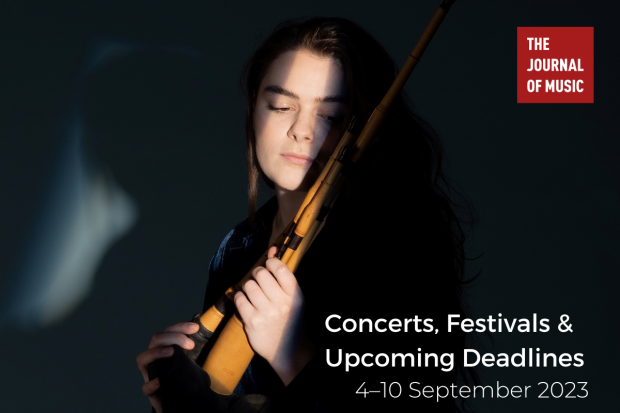
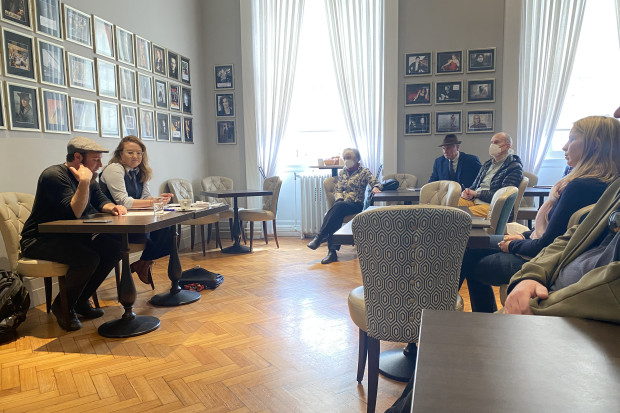

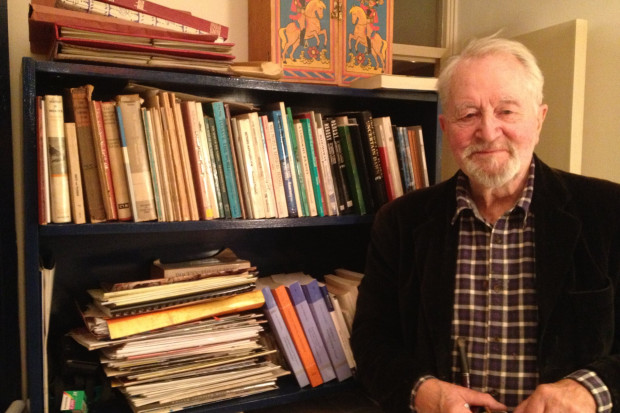
!['Irish history... [is] so apt for what's happening now': An Interview with Lauren Kinsella 'Irish history... [is] so apt for what's happening now': An Interview with Lauren Kinsella](https://www.journalofmusic.com/sites/default/files/styles/620x413/public/images/content/lk4_900_lo.jpg?itok=n67ugj7i)
